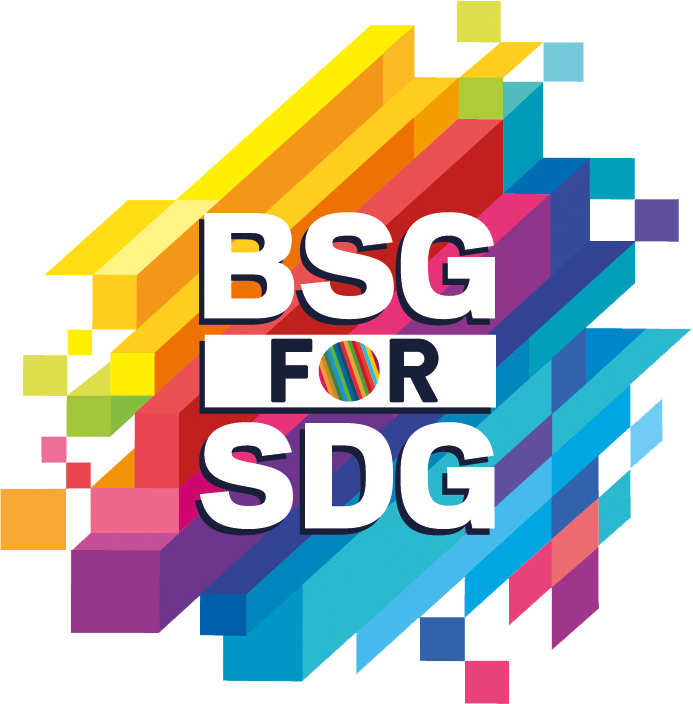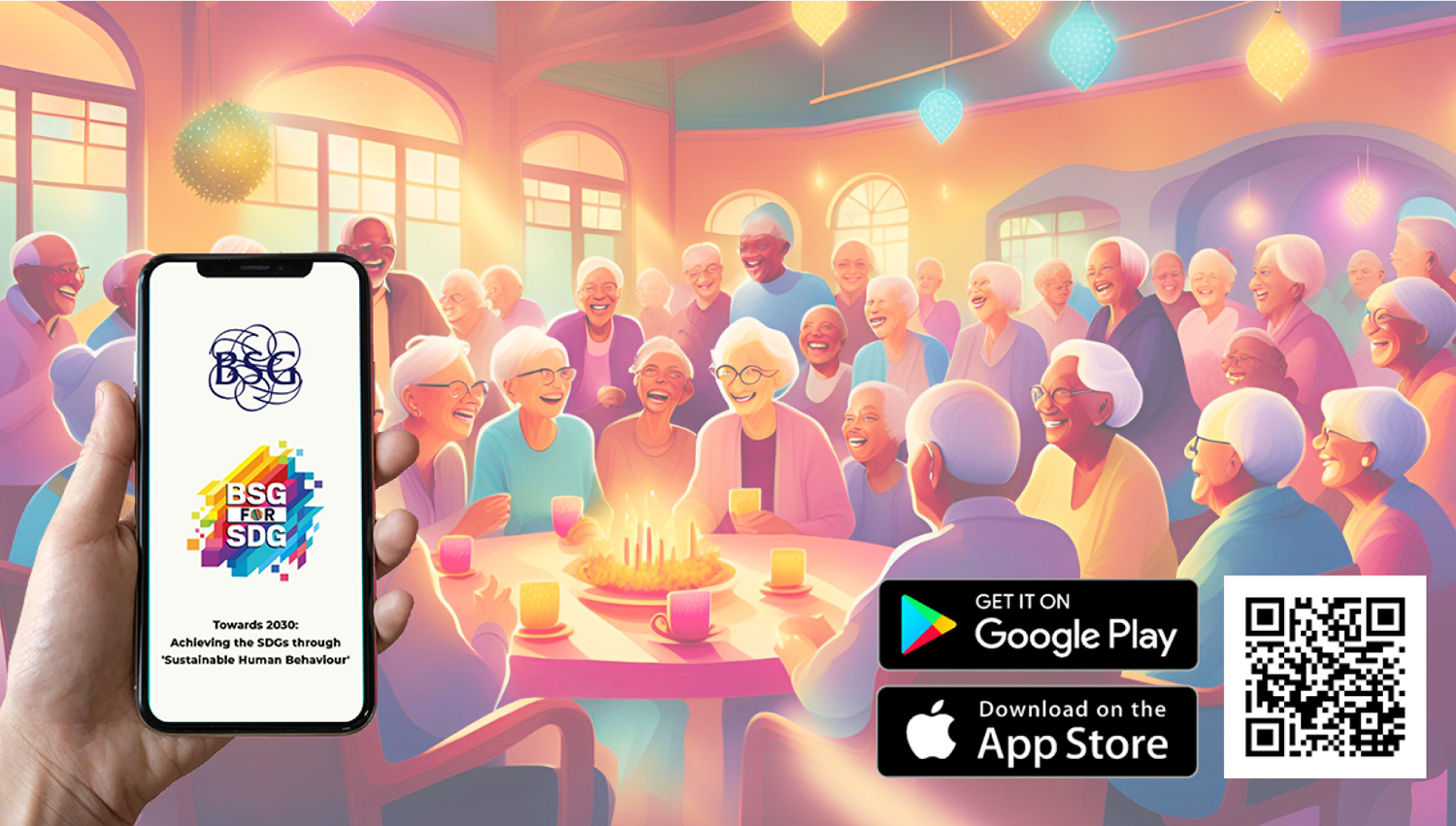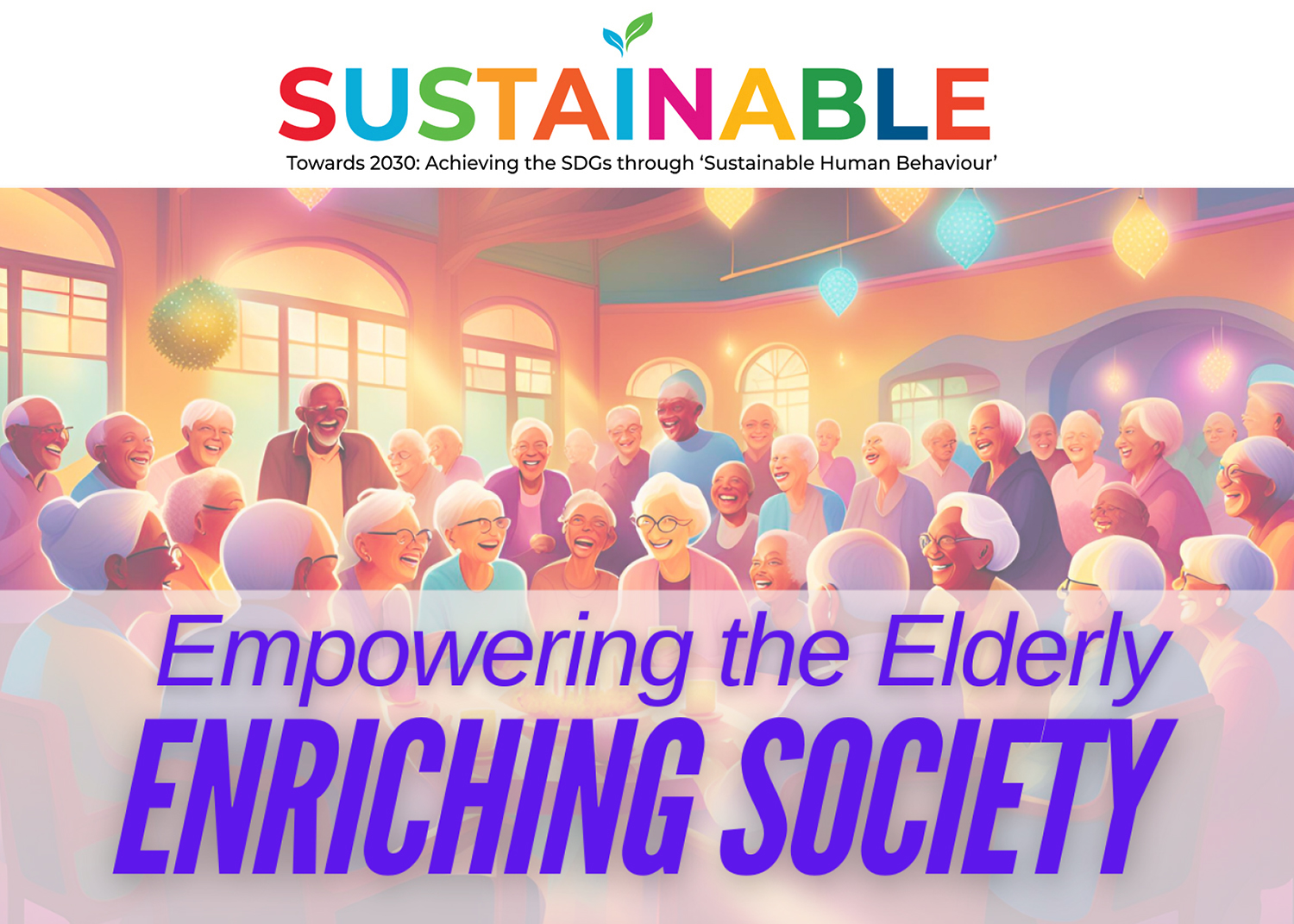

Greetings from BSG Chairperson Mr. Vishesh Gupta
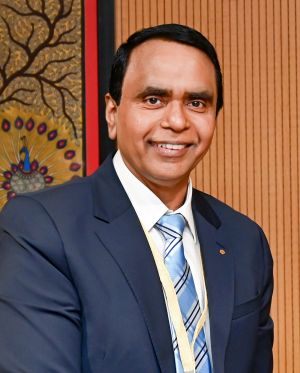
Dear Readers,
As November gently opens the year’s final chapter, it invites us to reflect on lives well-lived, with years blending into one another like dusk into night. Speaking of finality, this issue of the ‘Sustainable Newsletter’ is the last for the year. I want to take a moment to express my heartfelt gratitude for your engagement and support. Throughout our journey, we’ve explored vital topics, including sustainable food systems, the global stocktake of the climate crisis, ocean conservation, and waste management. Your commitment to these discussions has been inspiring, and I hope that each edition has added value to your understanding and awareness of these pressing issues.
In this issue, we’re marking International Day of Older Persons (1st October). The 2024 theme for the day is, “Ageing with Dignity: The Importance of Strengthening Care and Support Systems for Older Persons Worldwide”.
Ageing is a journey we all embark on, an experience that pays a visit at every home. As the years pass, we accumulate stories, memories, and lessons that enrich our existence.
Just as a grandmother’s handmade pickle ripens and deepens in flavour over time, so too does the essence of her being. By the third stage of life, she transforms from an ordinary woman into a wellspring of wisdom, woven with experiences of laughter, hardship, and triumph. Her stories, like the flavours of her pickle, become more complex and profound, offering nourishment and comfort to those who seek her guidance.
Yet oftentimes the needs of the elderly are neglected and forgotten. They hold unique perspectives and practical knowledge that, when harnessed, can drive meaningful change and serve as a powerful resource for society at large. Honouring and uplifting the voices of the older generations is critical for a healthy and happy society. Through this issue, we will learn about some of the challenges that ageing populations worldwide are struggling with. We also try to reflect on what each individual can do to protect and cherish the elderly.
As always, only through collective action can we achieve a cultural shift. Building an empowering society is in our hands. Let’s choose to build each other up and provide the space for older persons to shine in their golden years.
I will see you for another year of learning and growth very soon.
Warm Regards
Vishesh Gupta
Chairperson, Bharat Soka Gakkai
The human population now has the privilege of growing old, and it’s something to feel grateful about.
From 1974 to 2024, the global percentage of people aged 65 and older nearly doubled, rising from 5.5% to 10.3%. United Nations population projections suggest that this figure will double once more by 2074, reaching 20.7%. The ageing population is growing unprecedentedly, driven by better healthcare, reduced fertility rates, and increased life expectancy.
By 2030, 1 in 6 people globally will be aged 60 or over, according to the UN. In countries like Japan and Italy, the percentage of the elderly population will surpass 30%. The ageing population is increasing at a faster rate in developing nations today than it did in developed nations in the past. In many developing countries, the proportion of older adults is expected to rise rapidly, doubling from 7% to 14% within 15 to 35 years, followed by an increase from 14% to 21% in just 10 to 30 years. The upward trend in the global ageing population is a reality that we must plan for, with economic, social, and healthcare systems needing significant adaptation.
Living longer doesn’t necessarily mean living well. While life expectancy has increased, the quality of life for older people hasn’t always kept up. Many elderly individuals face issues such as chronic illness, loneliness, and inadequate care. The impact of chronic disease extends beyond medical expenses; it also encompasses lost income when an older adult cannot work due to declining health. Lack of financial and job security further deteriorates the quality of life. Usually, the burden of chronic diseases is felt more deeply by women and people of colour.
It’s crucial that as we extend life expectancy, we also focus on improving the quality of those additional years, providing environments where older people can thrive, not just survive. The World Health Organization (WHO) stresses the importance of creating age-friendly environments where elders receive integrated care and support. In countries like Japan, innovations in elder care robotics and digital healthcare solutions are emerging to help address these growing needs.
Here are some eye-opening statistics about older persons today:
- ● Two-thirds of the world’s older persons live in developing countries, where social safety nets are often weaker.
- ● By 2050, nearly 80% of older persons will be living in these regions.
- ● Older women experience greater levels of poverty than older men in both developed and developing nations.
- ● At present, over 55 million individuals globally are affected by dementia, with more than 60% residing in low- and middle-income countries. Each year, nearly 10 million new cases are reported.
Every individual has a role to play in improving the lives of older people. Here are some simple actions:
- ● Volunteer your time: Whether it’s in a nursing home or within your own family, spending time with older individuals can help combat loneliness.
- ● Older people are often assumed to be frail or dependent and a burden to society. Public health professionals, and society as a whole, need to address these and other ageist attitudes that affect the way policies are developed and the opportunities older people have to experience healthy ageing.
- ● Embrace intergenerational learning: Elderly individuals hold a wealth of knowledge. Encourage exchanges that value their experience and wisdom.
To truly embrace the idea that age is just a number, we must shift our perspective to view ageing as a period of continued growth, purpose, and contribution.
Some Refreshing Initiatives for Older Persons
Nelson Mandela’s “The Elders”
The Elders Org is a trailblazer in redefining how we view ageing. They believe that ageing should not be seen as a period of decline but as an opportunity for contribution. They create spaces where elders, who have been global leaders in the past, can share their life experiences. They guide younger generations with their wisdom. The organisation aims to shift the narrative around older persons from one of dependency to one of continued leadership.
By fostering communities where elders can pass on their knowledge, The Elders ensures that they remain integral members of society, not marginalised by age but celebrated for their experiences.
Satoko Fujioka’s “Hotch No Lodge”
Fujioka’s “Hotch no Lodge” in Japan transforms elderly care by integrating medical support with community involvement, creating a warm and welcoming environment for older adults. Rather than being passive recipients of care, they are encouraged to stay active, engaged, and mentally sharp by sharing their skills. The residents prepare meals for one another and teach younger generations how to cultivate vegetables and create art. Fujioka sees them not as “care receivers,” but as essential contributors to the broader community.

With our ever-expanding vocabulary, it’s good to learn the trending new terms and concepts associated with ageing. These terms reflect shifting attitudes toward ageing, emphasising positivity, health, and community support. Here’s a list of few such terms:
Positive Ageing Terms
- Superager: Individuals who maintain physical and mental health well into old age.
- Perennial: People who remain vibrant and engaged across their lifespan.
- Elder Wisdom: Valuing experience and insight gained with age.
- Age-Friendly: Communities designed to support older adults.
- Intergenerational Solidarity: Bridging gaps between ages.
Ageing-Related Concepts
- Gerontechnology: Technology for older adults.
- Age-Tech: Innovations for ageing populations.
- Silver Economy: Economic growth driven by ageing populations.
- Longevity Economy: Focusing on healthy ageing.
- Caregiver Burnout: Stress experienced by caregivers.
 To Read
To Read
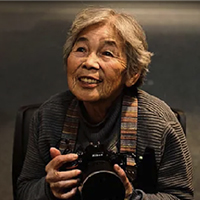
What the Japanese can teach us about super-ageing gracefully
This article explores how Japan, as one of the world’s fastest-ageing societies, fosters “super-aged” living with health-focused practices, community integration, and purposeful lifestyles that support longer, quality lives.
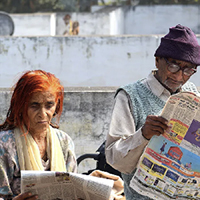
Elderly population In India is shifting towards solo ageing
This shift highlights challenges related to social isolation, healthcare access, and financial security, emphasising the need for policies and community support to assist the growing population of elderly Indians living independently.

Did you know: Travel can slow process of ageing
This article discusses how travel may support healthy ageing by stimulating the mind, reducing stress, and encouraging physical activity, all of which are beneficial in slowing the ageing process.

Treasuring the dignity of older people
Though published in 2018, the article’s insights remain relevant, highlighting timeless values essential to building a more supportive society for the elderly now and in the future.
 To See
To See
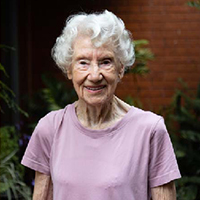
Positive Ageing – Heather’s story
In this short video, Heather shares her experiences of positive ageing, demonstrating how staying physically active and socially engaged can enrich life at any age. Her story highlights how passion, movement, and meaningful connections help foster resilience and joy, creating an inspiring model for graceful ageing.
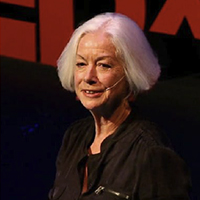
Dare to Question: Why Are We So Afraid of Getting Older?
This TED talk challenges societal fears around ageing, urging a mindset shift to embrace the later stages of life with courage and openness.
 To Listen
To Listen
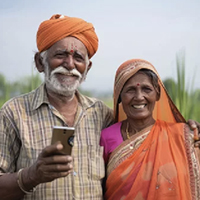
Bridging Generations
What’s the key to fostering strong, meaningful intergenerational relationships?

The Time is Now: Prepare for the Costs of Ageing
Let’s prepare to age. Listen to the podcast to find tips on financial planning.
 To Play
To Play
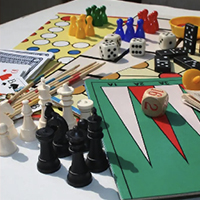
51 Great Games for Elderly People
Let’s take time out and engage our loved ones in a fun game.
As our world continues to evolve, so too must our perspectives on ageing. The societal aversion to the elderly often stems from youthful arrogance, a refusal to acknowledge the rich life experiences that older individuals carry with them. Mr. Daisaku Ikeda, the SGI Founding President, addresses this mindset in his discussions on “The Third Stage of Life.” He says, “As long as people today try to ignore the realities of ageing, sickness, and death, they are rejecting their own possibilities for the future.”
Mr. Ikeda asserts, “People have a strong tendency to scorn or despise whatever is different from themselves,” a notion which can be termed as “prejudicial mindset” or “xenophobia”. This perspective urgently needs to shift; older persons have the ability to contribute immense value to society. By relegating them to the margins, we deny ourselves the opportunity to appreciate the depth of their lived experiences fully.
He poignantly notes, “The enormous life experience the elderly possess is a precious treasure—for the elderly themselves, for those around them, and for society and the world as a whole.” Further, he says, “The words of the elderly, rich with maturity, have an often startling degree of wisdom and substance.”
In discussing the importance of maintaining a spirit of learning and growth, Mr. Ikeda highlights Dr. Arnold J. Toynbee as an inspiring example. He says, “Dr. Toynbee rose each day at 6:45 a.m. He and his wife prepared breakfast together. Then he made his bed and was sitting at his desk in his study by 9:00, ready to write. He still burned with a passion for knowledge, though he was well over 80.” Picasso continued painting into his 90s, pouring fresh creativity into each new piece. Nelson Mandela, released from prison at age 71, went on to become South Africa’s first Black president, leading a nation toward liberty and reconciliation. Ruth Bader Ginsburg famously said she would “do this job as long as I can do it full steam,” her dedication as a Supreme Court Justice lasting well into her 80s. These examples are important lessons on ambition and the kind of vitality that can accompany the later stages of life.
The cornerstone of a happy ageing society must, therefore, be rooted in a profound respect for the dignity of older individuals. It is also essential that older individuals live with resilience, embracing each day with a solid sense of mission and purpose. By recognizing the potential of older persons and addressing their needs, we can build a world where the ability to live long is genuinely celebrated.
Countries like China and Japan are raising the retirement age as they face a demographic shift toward ageing populations. This trend highlights that fostering an inclusive society where older adults play an active role isn’t just about social value—it’s also essential for sustaining economic growth. Tapping into the talent and experience of older generations is no longer optional; it’s a critical part of a balanced, resilient economy.
Seventy-Five Years Young: Leading with Passion for the Planet Alok Goyal | Men’s Division | Delhi
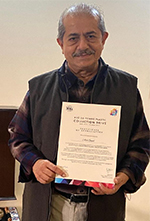
I was born in August 1949, just two years after India attained independence. Before retiring, I worked in a public sector enterprise focused on petrochemicals. By 1999, as the nation began recognizing the environmental hazards caused by plastic pollution, I dedicated myself to raising awareness about the impact of human behaviour on our ecosystem.
Throughout my career, I tackled challenges related to plastic, water, and energy, understanding their intricate connections and their collective impact on our planet’s well-being. I got an opportunity to work in the Government of India to introduce transformative policies, such as banning hazardous waste imports, phasing out CFC-based refrigerants, and improving waste and recycling systems under the Montreal Protocol. These efforts gave me immense fulfilment and a sense of purpose.
However, after retiring in 2009, I found myself grappling with the question of what to do next. A life built around such meaningful contributions felt difficult to replace.
I joined Bharat Soka Gakkai (BSG) in 2004 as a voluntary member. Through my practice, I discovered a profound new meaning of value creation—working to bring happiness to others, living undefeated in spirit, and becoming a source of joy and inspiration. BSG gave me direction, showing me how to channel my experiences into a mission-driven life.
My mentor, Mr. Daisaku Ikeda, writes: “There is no retirement from the fulfilment and spirit of quest that make up life, no retirement from the challenges that life always presents us.”
Inspired by this, I embraced a determination to continue contributing to society.
The lives of Soka Gakkai’s founding presidents also deeply moved me. The first President of Soka Gakkai – Mr. Makiguchi established the organisation at nearly 60, and the second President of Soka Gakkai – Mr. Toda continued fostering youth until his last days. My mentor, and the third President of Soka Gakkai – Mr. Ikeda remained a beacon of relentless effort even into his 90s. Their example inspired me to transform my retirement into a life of mission and value creation.
When BSG announced its 25-tonne Plastic Collection Drive in 2023, I seized the opportunity with joy and wholeheartedly volunteered. The initiative reaffirmed my passion for environmental sustainability. Even today, at 75, I continue weekly plastic and recyclable waste collection, handing it over to an NGO for proper disposal.
Beyond this, I actively advocate for sustainable practices, including:
- Conserving water through efficient use.
- Reducing energy consumption by using LED lights and switching off appliances when not needed.
- Promoting carpooling to minimise fuel usage and road traffic.
- Avoiding food wastage.
- Providing full-time employment to two men and part-time opportunities to three women.
- Supporting an NGO caring for senior citizens who live alone.
These efforts not only fulfil my passion but also inspire others around me to adopt sustainable habits.
Mr. Ikeda writes: “The purpose of our lives, to the very last moment, is to achieve something of value. When you reach old age, you know in your heart if your life was well spent.”
Today, I am proud to say that my life remains purposeful. At 75, I feel youthful and energised, driven by my commitment to sustainability. For as long as I live, I will continue to work for the environment, creating value for society and inspiring others to do the same. I am also dedicated to the goal of fostering young people who not only understand sustainability but actively contribute towards building a sustainable world.
A Life of Value Creation Beyond Retirement Neelam Nangia | Women’s Division | Delhi
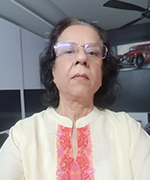
I became a voluntary member of Bharat Soka Gakkai in 1999. Over the past 25 years, my practice has transformed me into a confident, empowered individual. Through the Soka Gakkai, I encountered some of the most remarkable people who helped me believe in myself and connect deeply with my mentor, Mr. Daisaku Ikeda.
In 2013, I retired from a career spanning almost four decades—a job I loved. As someone who had always juggled multiple roles and responsibilities, the transition to retirement left me feeling lost and uncertain. My children were grown and settled in their careers, and I faced the question of how to navigate this new phase of life.
Instead of succumbing to inertia, I turned to the Soka Gakkai for inspiration. I used my free time to engage deeply with members across divisions and age groups. These interactions broadened my perspective and helped me discover new aspects of myself.
I came across a profound quote by Mr. Ikeda: “It is important to always look to the future, to have plans and aspirations, and it is a particularly crucial factor in making the last years of one’s life rewarding and fulfilling ones.”
Inspired, I resolved to embrace life’s challenges and shape a fulfilling path. Around this time, I discovered a shelter for destitute girls near my residence. The facility accommodated about 100 girls, aged 3 to 18, who attended a nearby government school. I began visiting regularly, spending time with the girls.
In 2021, the warden asked if I could help with their studies. I started volunteering by tutoring primary-level students, gradually expanding to older girls. Initially, only one girl showed interest, but within three months, my class grew to ten. Eight months later, students from grades 9 and 10 also began seeking my help.
In 2023, the home welcomed 30 girls from tribal areas in Jharkhand, Arunachal Pradesh, Manipur, and Uttar Pradesh. I now teach 20 girls, from grades 5 to 9, six days a week. The initial months were challenging as they spoke different regional languages and struggled with homesickness and cultural adjustments. Building trust was crucial. I encouraged them to see their education as a stepping stone for a better future.
The progress has been remarkable. Initially, some scored in single digits on their unit tests, but by the final exams in March 2024, many excelled. Seven girls secured the top five positions in their respective classes. In this year’s half-yearly exams, one girl scored 98%, and several others topped their classes.
In just two years, these girls have transformed from hesitant, shy individuals into confident, bright students. Their growth has deeply impacted me as well. They share their problems, confide in me, and look to me for guidance. This bond is mutual—while I guide them, they inspire me to lead a more disciplined and purposeful life.
At nearly 70 years old, health challenges are inevitable. Yet, I rarely miss my daily four-hour classes. Teaching these girls has not only made me feel useful but also motivated me to take better care of myself.
I owe this journey of growth to Bharat Soka Gakkai. The warm friendships and encouragement I received, and the teachings of my mentor, gave me the courage to pursue this path. Mr. Ikeda says: “Though our bodies may age, through participating in SGI activities, our hearts and minds remain as bright and shining as the sun. We are youthful as long as we live. Those who work for others’ happiness remain vigorous and full of energy.”
This guidance resonates deeply with me. I feel immense pride in leading a life of mission and value creation. Unknowingly, I have been contributing to SDGs 1 (No poverty), 4 (Quality education), 5 (Gender equality), and 10 (Reduced inequalities). Moving forward, I am determined to maintain a sustainable, disciplined, and healthy lifestyle while continuing to contribute to society for as long as I live.
 SDG Tip for Daily Life
SDG Tip for Daily Life

10 tips for ageing better
We know it’s not just about living longer, it’s about living healthily and happily for longer. Follow these top 10 tips for ageing better.
How-to:
1. Watch what you eat and drink
2. Look after your teeth
3. Stay active
4. Make the most of your doctor
5. Get a vitamin boost
6. Take care of your feet
7. Sort out your sleep
8. Take the tests
9. Stay in touch
10. Give up smoking
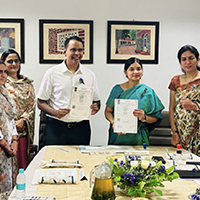
Updates
BSG and Miranda House College unite for youth-led SDG action
BSG proudly participated in Miranda House’s Sustainability Conclave, focusing on youth leadership for realising SDGs by 2030. This impactful event brought together students, experts, and thought leaders to discuss innovative solutions and take collective action for a sustainable future
Read more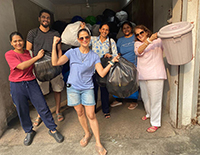
BSG conducts second annual plastic collection drive in Mumbai, recycling 10,425 kgs of plastic waste
From October 14 to 20, 2024, Bharat Soka Gakkai (BSG) held its second Plastic Collection Drive in Mumbai, uniting the city in a mission to take meaningful action against plastic waste. Over 5,000 BSG members and Mumbai citizens came together with a common goal: to reduce the city’s plastic burden and contribute to a more sustainable future.
Read more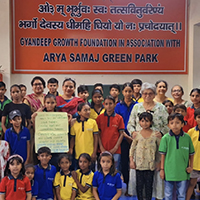
BSG conducts SDG awareness session at Gyandeep Growth Foundation
In observance of World Environmental Health Day, BSG Volunteers conducted an engaging session with 40 children from the Gyandeep Growth Foundation, a not-for-profit organisation supporting underprivileged students. This initiative aligns with BSG’s ongoing commitment to raising awareness about the 17 Sustainable Development Goals (SDGs).
Read more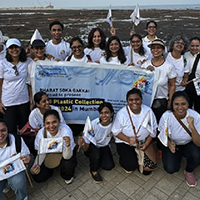
Bharat Soka Gakkai and Swachha Vasundhara Abhiyaan together clean close to 8000 kgs of waste from the beach
On September 21, 2024, BSG joined forces with Swachha Vasundhara Abhiyaan for a beach cleanup drive at Carter Road Beach, Bandra West, Mumbai. This initiative marked International Coastal Cleanup Day, a collective effort to protect our oceans and marine ecosystems.
Read more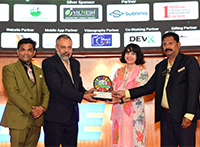
Vyapaar Jagat bestows the prestigious “Greenpreneur Sustainability Awareness Pioneer Award” upon BSG
On October 19, 2024, BSG was conferred with the prestigious “Greenpreneur Sustainability Awareness Pioneer Award” by Vyapaar Jagat. This recognition acknowledges BSG’s humble efforts to promote sustainability awareness and its earnest endeavours to encourage individuals to adopt a sustainable lifestyle.
Read more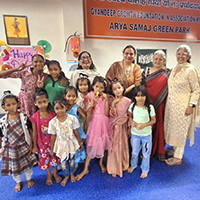
Diwali Celebration with Gyandeep Foundation: Fostering Unity, Education, and Inclusion
Bharat Soka Gakkai (BSG) volunteers have been actively collaborating with Gyandeep Foundation to create empowering and inclusive spaces for underprivileged and marginalised students. As part of this ongoing partnership, BSG volunteers participated in Gyandeep’s Diwali celebration on October 25th, supporting the foundation in creating joy, education, and a sense of belonging among the Gyandeep children and volunteers.
Read more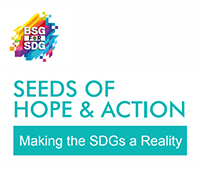
BSG Has Now Successfully Held Over 180 SOHA Exhibitions
The ‘Seeds of Hope and Action (SOHA): Making the SDGs a Reality’ exhibition has travelled to 180 destinations across the country, including: Chandigarh, Amritsar, Jaipur, Delhi, Karaikal, Gangtok, Kalimpong and Hurda, Rajasthan.
Read more
BSG Forms SDG Clubs in Miranda House College, Delhi University and Pathways School, Gurgaon.
As part of its mission to foster young SDG ambassadors in Indian schools and colleges, BSG established the 28th and 29th SDG Clubs in Miranda House College, Delhi University and Pathways School, Gurgaon.
Read moreContact Us
 Any queries or suggestions regarding the newsletter can be addressed to sdg@bharatsokagakkai.org
Any queries or suggestions regarding the newsletter can be addressed to sdg@bharatsokagakkai.org
 To know more about the ‘BSG for SDG’ initiative, visit the BSG for SDG website
To know more about the ‘BSG for SDG’ initiative, visit the BSG for SDG website
 Download the ‘BSG for SDG’ mobile app with the carbon footprint calculator
Download the ‘BSG for SDG’ mobile app with the carbon footprint calculator
